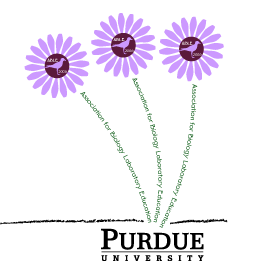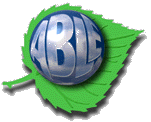Site Links
![]() ABLE 2007: University of Kentucky, Lexington, KY June 5-9. Host: Ruth Beattie
E-mail: rebeat1@uky.edu
ABLE 2007: University of Kentucky, Lexington, KY June 5-9. Host: Ruth Beattie
E-mail: rebeat1@uky.edu


Mini Workshop
Friday June 9
Bohrer, Kelly, Barbara Stegenga, and Alma Ferrier
Training and Mentoring TA’s in Inquiry-Based Methods
Inquiry based learning (IBL) engages students, fosters critical thinking, builds
problem-solving skills, improves attitude and achievement, and facilitates
understanding. For these reasons, IBL is a critical component of teaching
laboratories and is an effective method for accomplishing instructional objectives
in biology labs. More and more biology lab coordinators and curriculum
developers are realizing the importance of presenting laboratory activities
in an inquiry context and are delighted in the results these activities can
have on students.
So, is IBL happening successfully in your biology labs? The answer to this question can greatly depend on who is “teaching” the lab. Teaching for IBL is a skill that often requires “seeing” it before doing it, practicing it, believing in its effectiveness, having self-confidence in teaching abilities, and thoroughly understanding the material. Successful inquiry based teaching also requires eliminating fears such as losing control of the class, overcoming misconceptions about learning, and letting go of more traditional forms of teaching. This is not an easy task and can be especially challenging for graduate and undergraduate lab teaching assistants (TA’s). Many TA’s have not been exposed to IBL; thus, when teaching, they often revert to the traditional way they have been taught because they know that “way” all too well. When attempting to facilitate IBL with their class, TA’s run into difficulties and can easily become discouraged, especially if they do not have the skills or confidence needed. So, how can we help TA’s be more confident and skilled in facilitating IBL labs?
This mini workshop will answer this question by starting an important conversation about training/mentoring TA’s to successfully facilitate IBL labs. The workshop will begin with a discussion (based on results of surveys) of TA’s common misconceptions about learning, their fears about teaching IBL, the experience level they have with IBL before teaching, and how important they believe IBL is in a college teaching lab. The three presenters will share methods used in TA training and mentoring that have been successful at their universities. These include use of the 5E learning cycle, assignments used to expose TA’s to IBL, ways to run TA meetings to boost IBL success in the labroom, and a TA peer mentoring program used to offer support. Presenters will also share problems that have arisen and possible solutions to problems. The sharing of insights from both presenters and participants will be integral to the workshop.